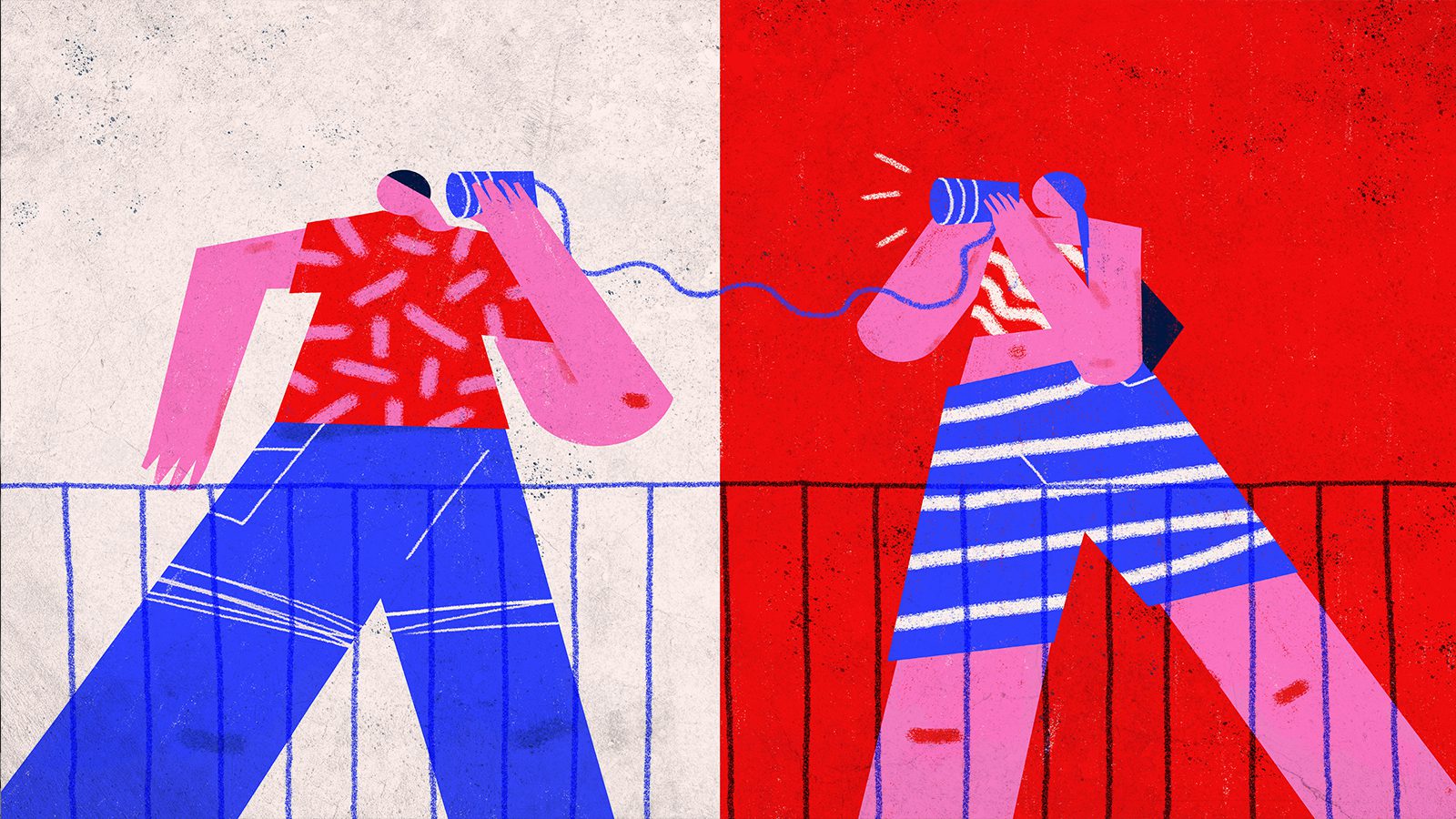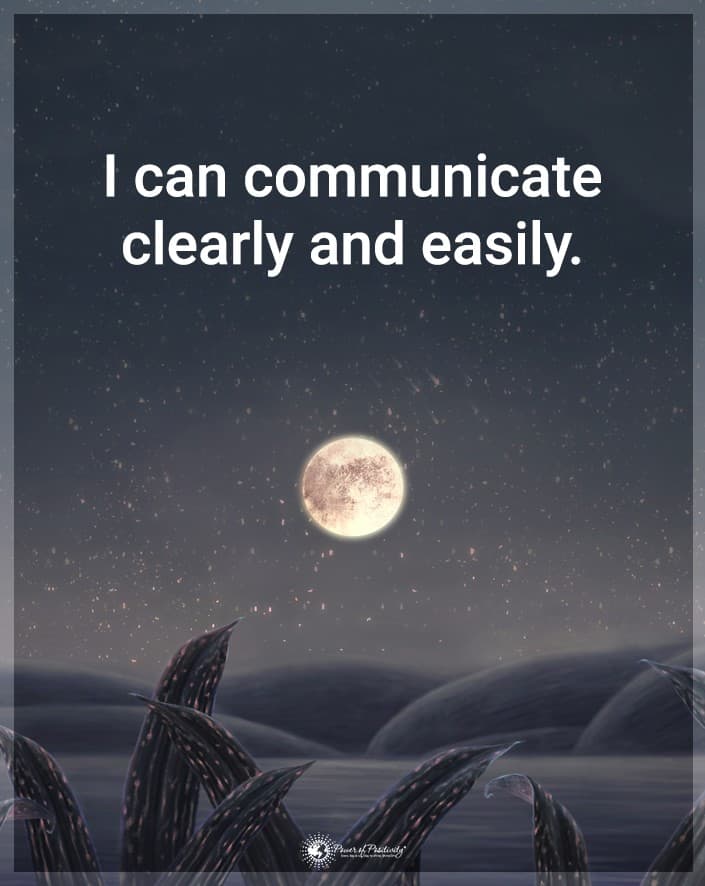With today’s technological advances, you can chat with anyone worldwide, and you can even see their smiling faces. Unfortunately, people still seem too busy for quality conversation. Learning how to communicate better with your loved ones is a skill you’ll never regret.
Ten Tips on How to Communicate Better
Knowing how to communicate efficiently is crucial in your personal and professional lives. How you relate to your family, friends, and loved ones will make a difference in your fulfillment. Here are some valuable tips for better communication.
1. How to Communicate Better by Being an Excellent Listener
You’ve probably heard that conversation is a two-way street. The person you’re talking with says something, and you respond, then vice-versa. Have you ever been in a one-sided conversation when the other person is chatting away, and you smile and nod your head?
Concentrate on being a good listener if you want to learn how to communicate better with friends, family, and coworkers. Listen to them instead of simply hearing their words and thinking what you want to say next.
Use receptive body language, eye contact, mirror their emotions, and don’t interrupt. Please take a couple of seconds to ingest what they’re saying. Active listeners show genuine interest in what others say, and they know it’s a key component of communicating.
Think of how many relationships were ruined because of misunderstandings. After you listen to the other person and pause for a minute, ask for any clarification. You can avoid a misunderstanding that could throw a wrench in your discussion.
2. Send an Old-Fashioned Letter
Before people had telephones, texting, and email, they wrote letters to their family and friends. Transportation by horse wasn’t always available at a moment’s notice, so they often sent letters to folks living in the same area. Our ancestors knew how to communicate better with cards and letters, even without modern conveniences.
Why not revive an age-old custom and surprise your family and friends with a handwritten letter or card? Buy some attractive stationery, a colorful selection of cards, and some stamps. While it’s acceptable to email and text, the people in your circle would appreciate the extra step you took to think of them.
3. How to Communicate Better by Being Honest and Genuine
Those who know how to communicate better make honesty their best policy. A real friend will tell you the truth lovingly, even if it stings a little. Those who tell you just what you want to hear aren’t doing you any favors.
Your family, friends, and coworkers will show you more respect when you’re genuine and honest in your conversations. They need to know that you’re a person of your word and aren’t fake. Those with honesty and integrity know how to communicate better.
It’s also essential that you convey honest feelings to each other. Don’t wait until someone has passed and regret that you didn’t express your feelings. Excellent communicators understand the value of leaving nothing unsaid nor love left undone.
4. Create a Positive Atmosphere
Isn’t it mind-boggling to converse with someone who has nothing to say but negativity and criticism? Everybody has a person in their circle that puts a damper on any festivity. Be an inspiring conversationalist and try to keep things upbeat.
People are more apt to lower their guard and have genuine discussions in a positive atmosphere. Even when you’re the bearer of bad news, your compassionate ear can be a positive support in times of despair. If you enjoy lively conversation, remember that people gravitate toward others who radiate optimism.
5. Turn off Technology and Tune into Others
Have you ever wondered how people in the past entertained each other? They didn’t need televisions, video games, and other noisy gadgets. Instead, they gathered around the hearth or on the front porch to laugh and talk under the stars.
The best gift you can give to others is to be fully present. When you pay attention when others are talking, you’ll know how to communicate better. Take a break from technology and learn to speak and listen to each other again.
Better yet, why not have meaningful conversations in the great outdoors? There’s something about the beauties of nature that boost your sensitivity and gratitude. Plus, all the little woodland creatures won’t repeat anything they hear.
6. Ask the Right Questions (One of the Friendliest Tips on How to Communicate Better)
If you have teenagers or have raised them, you know how futile closed-ended questions are. They usually offer their parents the classic teen trio of “yes,” “no,” or “I don’t know.” Learning to communicate better with your kids and others begins with asking the right questions.
Remember the five questions you should ask when talking to those in your circle: who, what, when, where, and how. These open-ended questions solicit a more detailed answer. It encourages the other person to talk and puts them at ease with you.
Another tool skilled conversationalists use is getting people to talk about themselves. It’s a subject they know best, and they’ll appreciate your interest in their thoughts and experiences. In a social setting, avoid taboo subjects such as religion, romance, politics, or anything too personal.
7. Know When to Take a Break
Even in the best personal and professional relationships, different personalities and opinions make people lock horns. Debating these differences shouldn’t be bad if the conversation is respectful. However, some situations can cause heated emotions, and it’s best to step back when things are going south.
Rather than say hurtful things that can’t be retracted, call a time-out. Give yourself and the other person time to relax and reflect on the conversation. You’ll have better relationships when you both learn to listen to each other and make compromises when necessary.
8. Know Your Circle
Discovering how the people in your circle tick is relevant for learning how to communicate better. You know their personality differences and the best ways to converse with them. Treat everyone as individuals and tailor your conversations accordingly.
For example, maybe your mate isn’t a morning person and is a bit cranky before a pot of coffee. You realize that mentioning certain subjects with them isn’t wise until later in the day. Being sensitive to others’ habits and moods will help you learn how to communicate better.
What kind of communicator is your family or friend? Are they a person of few words, or do they create a one-person gabfest? You’ll need to tailor your conversation a bit to understand their thinking. The more you communicate with others, the more you can improve your relationships.
9. Learn How to Discuss Difficult Subjects
According to Dan Mager, LSMW, having difficult discussions with people can heighten your anxiety. Mager suggests that you prepare what to say and keep to the topic without being accusatory.
Nobody enjoys these conversations, but the other person will appreciate your honesty. Whether you’re relaying terrible news or discussing a problem in your relationship, remember to do it with respect and compassion.
Confronting relationship issues is bound to heighten emotions, so tread carefully. Instead of putting your mate on defense with “you” and “your,” use “I” and “my.” For example, “I feel unappreciated when you spend more time watching tv than with me in the evenings.
Statements like these convey your feelings instead of pointing a finger. Avoid using blanket statements with “always” or “never.” They aren’t helpful and may escalate the mood into an argument. It’s better to be neutral and say, “Sometimes I get frustrated when you don’t call me and tell me you’ll be late for dinner.”
Another way to give your conversations more equality is to say, “talk with” rather than “talk to.” When you ask, “May I talk with you?” it makes the other person feel connected. Saying “talk to” gives the impression of superiority that won’t be well received.
10. Remember the Importance of Touch
Physical contact is of the utmost importance when in a romantic relationship. Receptive body language and a loving touch speak volumes without saying a word. You’ll also pay attention to nonverbal cues as you discover how to communicate better.
There’s nothing like walking through the park or the grocery store hand-in-hand with your lover. Gestures like a hug, a touch on the shoulder, or the hand can also show your loved ones you care. In most cases, courteous handshakes are still appropriate in a professional setting.
Final Thoughts on How to Communicate Better
It’s been said that nobody is an island, and everyone depends on each other to survive and thrive. Communicating better can enrich your life and strengthen your personal and professional relationships.
It’s like any other skill that must be practiced to see improvements and benefits. Communication is vital in your life, so spend some time perfecting it.




















